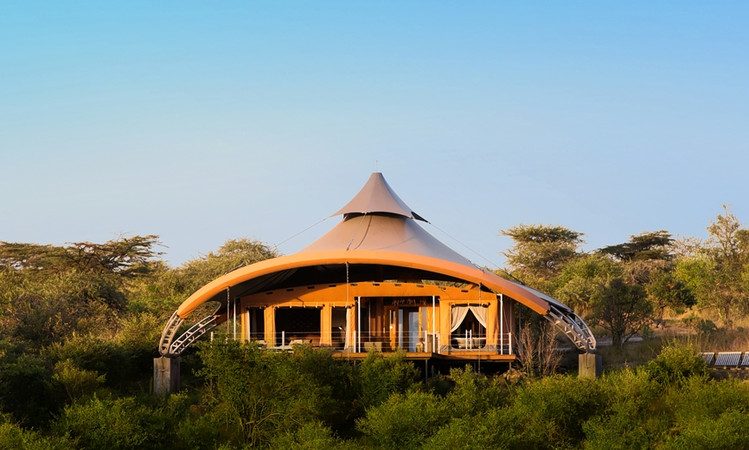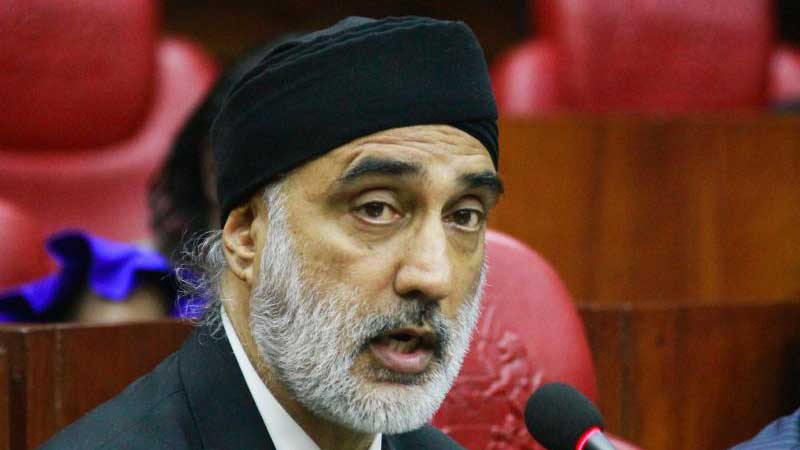Kenya’s luxury hospitality sector is enjoying remarkable growth, buoyed by a surge in international arrivals, a stable economy, and an expanding middle class. Industry experts attribute this upward trend to the country’s unparalleled natural beauty, strategic geographic location, and supportive government policies, factors that are drawing substantial investments into high-end tourism and hospitality.
These dynamics will take centre stage at the forthcoming East Africa Property Investment (EAPI) Summit, East Africa’s premier real estate event. The 12th annual summit is set to take place in Nairobi on 7–8 May and will convene over 450 global investors, developers, and property professionals. Attendees will explore lucrative opportunities across Kenya, Tanzania (including Zanzibar), Uganda, Rwanda, and Ethiopia—nations currently demonstrating strong economic recovery and increased political stability.
Commenting on Kenya’s hospitality sector, Bani Haddad, Founder and Managing Director of Aleph Hospitality, emphasised the country’s untapped investment potential. “Kenya presents a great opportunity for hospitality investment due to its unique combination of untapped potential, economic stability, strategic location, and government incentives. Add to that a 35% increase in international visitors and a growing middle class with disposable income. It’s clear that the demand for quality hospitality services will continue to rise, offering promising opportunities for local and international investors,” said Haddad.
Aleph Hospitality is the largest independent hotel management company operating across the Middle East and Africa. Mark Dunford, Chief Executive Officer of Knight Frank Kenya, pointed out that enhanced air connectivity is crucial to sustaining tourism growth. “Jomo Kenyatta International Airport must remain a hub for the Sub-Saharan Africa region, with additional long-haul flights supported alongside further investment in other domestic airports,” he said.
Jomo Kenyatta International Airport (JKIA) serves as the main international gateway to Nairobi, Kenya’s capital.
Fiona Craw, Vice President of JLL Africa’s Hotels & Hospitality Group, noted the sector’s attractiveness to investors, especially in Nairobi and the Masai Mara. She attributed the boom to strong demand from corporate, leisure, government, and MICE (Meetings, Incentives, Conferences, and Exhibitions) segments.
Nairobi’s stature as a major economic and transport hub, coupled with Masai Mara’s reputation as a world-renowned safari destination, continues to fuel this investment trajectory.
Craw also highlighted the role of Kenya’s growing infrastructure, especially in Nairobi, in enhancing accessibility and supporting the nation’s goal of becoming a premier MICE tourism destination. “This strategic positioning is driving demand for high-quality accommodation and state-of-the-art meeting facilities,” she added.
Nevertheless, industry leaders caution that several challenges are hindering sustained growth.
“While Kenya’s hospitality sector shows resilience and expansion, it faces obstacles such as security concerns, regulatory red tape, supply chain disruptions, and talent shortages. Moreover, high financing costs and inflation-driven operational expenses put pressure on profitability,” said Haddad.
He added, “To position Kenya as a global investment hotspot, collaboration between government and the private sector is critical. Improving infrastructure and security, streamlining land acquisition and approvals, diversifying suppliers, and investing in human capital will be essential.”
Visa complexities remain a further hurdle. Kenya, like many African countries, experiences challenges such as limited visa-free travel, cumbersome application procedures, and inconsistent passport strengths across the continent. Political and security factors also affect mobility.
Dunford of Knight Frank remarked, “One of the easier issues to resolve would be simplifying the visa and entry process to actively encourage tourism.”
Another concern for potential investors is Nairobi’s hotel room oversupply, which has intensified competition. Craw estimated that the city has added more than 2,000 new hotel rooms over the past 18 months, placing downward pressure on performance forecasts through 2025.
Daniel Trappler, Senior Director of Development for Sub-Saharan Africa at Radisson Hotel Group, partially agreed. While acknowledging overcapacity in some areas, he noted that certain zones still hold untapped potential. Brands like Radisson Collection and Radisson RED could perform well if launched in the right locations, he said, adding that RHG is actively exploring expansion opportunities in Nairobi.
Despite intense competition, pockets of excellence continue to emerge. Marriott International, which already operates hotels in Nairobi and safari lodges in the Masai Mara, is witnessing strong growth.
Jugal Khushalani, Marriott’s Senior Director for Development in East Africa, stated: “There remains an increased appetite for high-end experiences in the market, positioning us to further expand our portfolio of luxury brands. Kenya is poised for sustained growth across all segments, and we remain committed to supporting the sector’s expansion.”
Experts remain optimistic about the long-term outlook of Kenya’s luxury hospitality industry and have proposed several strategies to ensure sustained growth:
- Alternative financing models: Public-private partnerships and government-backed incentives could ease the financial burden of new developments.
- Sustainable tourism: Eco-conscious initiatives, including solar power usage and marine conservation, are being embraced to meet global trends in responsible luxury tourism.
- Enhanced air connectivity: Continued investments in JKIA and regional airports will improve accessibility for long-haul travellers.
- Bespoke experiences: Personalisation remains a key driver in luxury travel. Tailored safaris, cultural tours, and secluded beachfront stays are increasingly appealing to discerning travellers.
With strategic investments and close collaboration between government agencies and private stakeholders, Kenya is well-positioned to cement its place as Africa’s top luxury travel destination. From world-class safaris to idyllic coastal retreats, the country continues to draw high-value tourists in search of unforgettable experiences.





